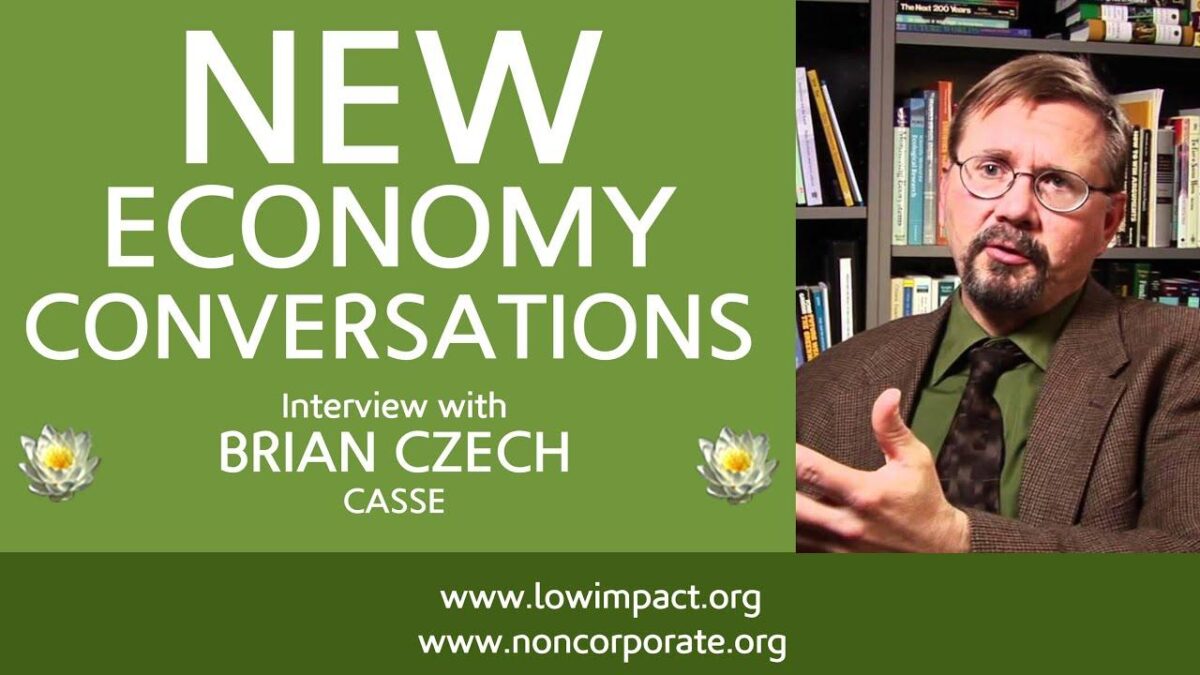With Brian Czech of CASSE
Brian served in the U.S. Fish and Wildlife Service from 1999-2017, and as a visiting professor of natural resource economics in Virginia Tech’s National Capitol Region. He is the author of Supply Shock, Shoveling Fuel for a Runaway Train, and The Endangered Species Act: History, Conservation Biology, and Public Policy, as well as over 50 academic journal articles. .
Highlights
- What Jevons said about coal applies macroeconomically as well. He said that efficiency in the use of a resource never actually reduces the use of that resource – it always does the opposite, because it becomes cheaper to use.
- It takes heavy investment just to raise the bar a little more, because all the easily-available natural capital has been liquidated a long time ago. To provide the funds for that investment, more activity is required at the base of the economy, which causes ecological damage.
- Wall St. is a barrier, and neoclassical economics is still pumping out academics who still believe in the landless production function, and who believe that the economy can be dematerialised, and that we can have ‘green growth’. But we can see that barrier crumbling rapidly now.
